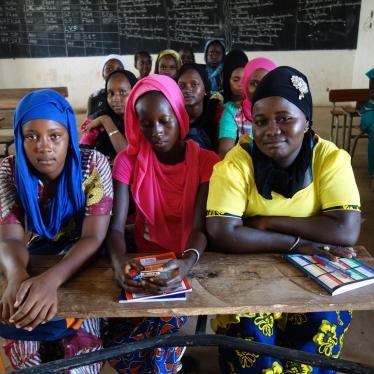On April 29, just ahead of International Workers' Day, Iranian authorities summoned Behnam Ebrahimzadeh to discuss the terms of his temporary release from Tehran's notorious Evin prison. Ebrahimzadeh, a labor activist and blogger who is almost three years into a five-year prison sentence, was given leave from the prison after many pleas to care for his ailing son, who suffers from a serious blood disorder.
Ebrahimzadeh is now waiting for the Evin prison prosecutor's office to tell him when he must leave his son Nima to serve out the remainder of his prison term. In December 2011, an appeals court affirmed his conviction for 'crimes' related to his labor activities and issued the five-year prison sentence. The sentence also imposes a five-year ban on union activities after Ebrahimzadeh's release.
Years ago, Iran's leaders lauded the country's workers as the dispossessed vanguards of the 1979 Islamic Revolution. Today, Iranian workers like Ebrahimzadeh face perhaps their toughest challenge in decades. Official statistics show that more than 100,000 workers lost their jobs between May 2011 and May 2012. About half of Iran's manufacturing facilities have ceased production or are close to closing. Many large factories are operating at around 30 per cent of capacity. The statistics say that four out of every five workers are hired on temporary, short-time, or other bases that offer few benefits and afford minimal protection of workers' rights. Thousands of factory workers have gone on strike to demand months of back wages.
Earlier this year, the government declared a 25 per cent increase in the minimum wage, bringing it to around $140 per month, yet inflation is running at almost 32 per cent, according to official data. Add to that what has been widely described as serious economic mismanagement under President Mahmoud Ahmadinejad's administration, and the impact of tough economic and financial sanctions that the United States and European Union have imposed because of Iran's alleged nuclear weapons programme. The picture that emerges is of a desperate and unforgiving environment in which Iranian workers increasingly struggle to make ends meet while many are pushed into poverty.
Yet the sanctions and even the mismanagement do not fully explain the enormity of the challenge faced by Iran's workers today. At the heart of the problem is the government's long suppression of the right of workers to establish independent trade unions to mobilise, negotiate, and challenge government policies they consider harmful. Iran's labor law does not recognise the right to create labor unions independent of government-sanctioned groups, and authorities do not permit such unions to operate although they are required to under international treaties to which Iran is party.
In recent years, especially under Ahmadinejad, state security authorities have repeatedly sought to harass and intimidate labor activists and those calling for independent trade unions, arresting, detaining, and prosecuting them. Dozens have been sent to prison. Authorities initially arrested Ebrahimzadeh on May 1, 2009 in connection with a demonstration for workers' rights. He was a member of a labor rights group working to establish independent unions and the Society for the Defence of Street Children. He spent a month in detention before the judiciary gave him bail while investigations against him continued. He was arrested again almost a year later on June 12, 2010, the anniversary of the disputed 2009 election that gave Ahmadinejad his second term.
Authorities detained Ebrahimzadeh in Ward 209 of Evin Prison, run by Iran's Intelligence Ministry, for almost 80 days, interrogating, beating, and torturing him. They held him in solitary confinement for four months before they eventually allowed him access to a lawyer. A revolutionary court in Tehran later convicted him of publishing "lies" on his blog, of "membership in an illegal organisation," and of "participating in illegal gatherings" in connection with labor rights activities, among other "crimes."
Despite the daunting risks they face, Ebrahimzadeh and his colleagues in Iran's labor movement continue their struggle to get recognition of the rights of workers to form independent trade unions, and to exercise their right to peaceful assembly without government interference. Although officially banned and under constant pressure from the security authorities, some independent trade unions – such as the Syndicate of Workers of Tehran and Suburbs Bus Company, the Haft Tappeh Sugar Cane Workers' Syndicate, and the Iran Free Workers' Union – continue their work to represent workers' interests.
Given the dire conditions for Iran's workers, this struggle is enormously important. But the personal costs for those leading the way are immense. Surely both father and son are aware of those high personal costs as they wait to be told by Iran's judiciary when Behnam Ebrahimzadeh must return to his prison cell. In the meantime, the fate of a family that is literally struggling to survive hangs on that decision.
Faraz Sanei is the Iran researcher at the campaign group Human Rights Watch.








